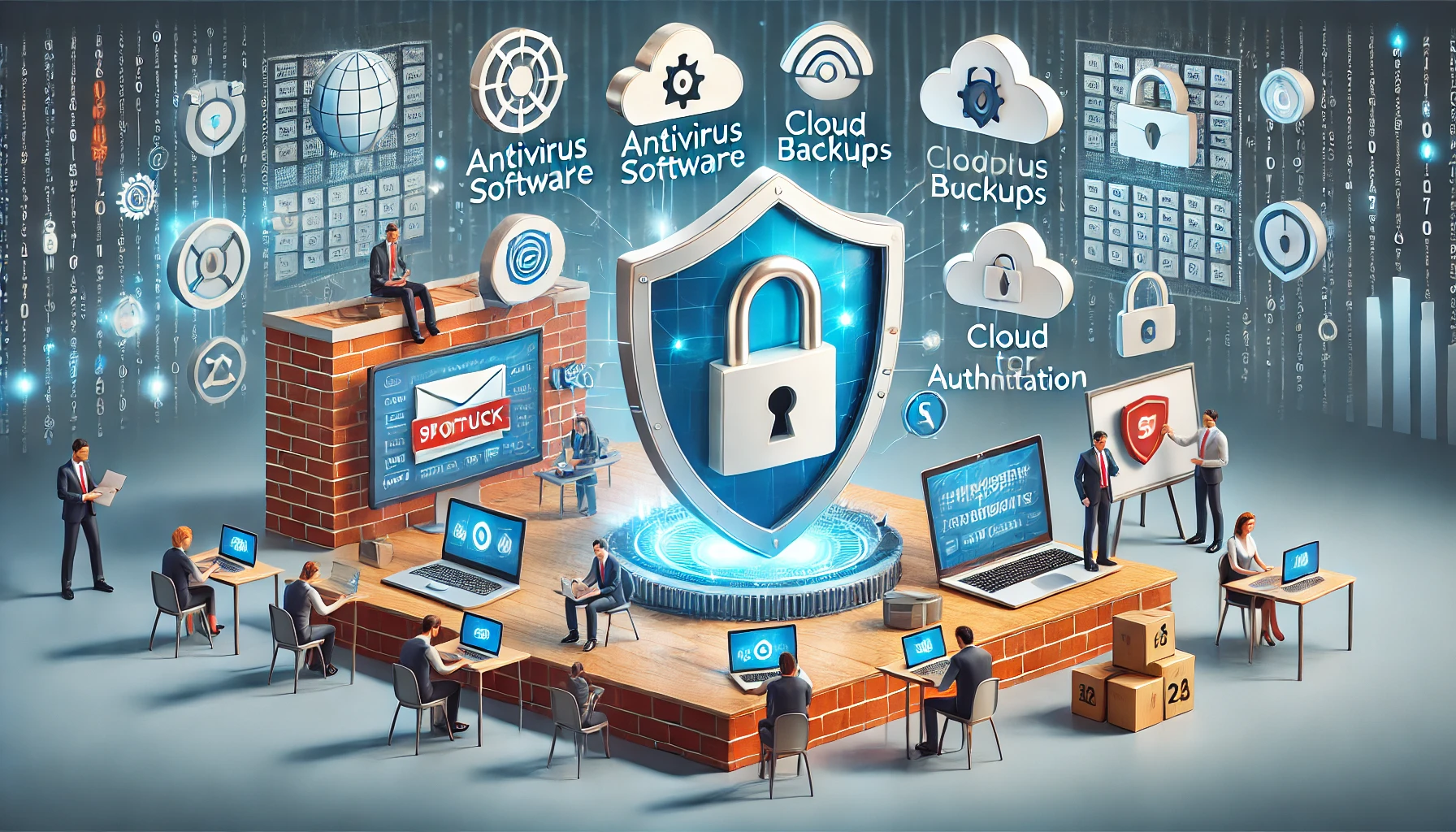Cybersecurity Strategies for Small Businesses: How to Outsmart Hackers Without Breaking the Bank

The Reality of Cyber Threats for Small Businesses
Running a small business is tough enough without having to worry about cyberattacks. Yet, cybercriminals don’t discriminate based on size. They love to target small businesses precisely because they often think, 'Why would anyone come after me?' Spoiler alert: They will. But here's the good news—just because your budget is small doesn’t mean you can’t defend against big threats. Let’s dive into how you can bolster your cybersecurity without spending a fortune.
Affordable Tools That Pack a Punch
Cybersecurity doesn’t have to mean buying the latest, expensive tools that cost more than your rent. Plenty of affordable (and sometimes free!) tools exist to help you outsmart the bad guys. Firewalls? Check. Antivirus software? Double-check. Let’s look at some MVPs of the small business cybersecurity world.
Free and Low-Cost Antivirus Software
You don’t need a massive IT budget to protect your systems from viruses, malware, and all the digital nasties out there. Look for free versions of reputable antivirus software like Avast, Bitdefender, or AVG. These may offer basic protection, but trust me, basic is way better than nothing.
Firewall Protection That Won’t Burn a Hole in Your Wallet
Think of a firewall as your digital moat, keeping unwanted guests out. You don’t need Fort Knox-level security, but tools like pfSense or Untangle provide excellent firewall options that won’t cost you your entire profits. Even Windows comes with a built-in firewall. The best part? You probably already have it and just need to turn it on.
Two-Factor Authentication: Simple, Cheap, Effective
We all know passwords are like the locks on our digital doors, but adding two-factor authentication (2FA) is like hiring a bouncer to stand guard. Services like Google Authenticator or Microsoft Authenticator are free and can drastically reduce the chances of a hacker sneaking in. A simple text to your phone could save you thousands in potential losses.
Backup Strategies on a Shoestring Budget
Backing up your data is like buying insurance—boring but essential. The good news? Cloud services like Google Drive or Dropbox offer affordable storage options that won’t make you cry when you see the bill. Regular backups will protect you against ransomware, human error, and all sorts of mishaps. Just imagine having to explain to customers that you lost all their info. Yeah, that won’t go down well.
Train Your Staff—Your First Line of Defense
Even the best cybersecurity tools can’t protect your business if your staff doesn’t know how to use them. The majority of cyberattacks happen because someone on the inside accidentally lets a hacker in. Think phishing emails or weak passwords. So, invest some time in training your team. Even a basic training session on recognizing phishing attempts and using strong passwords can do wonders. Best of all, many resources online offer free courses on cybersecurity basics.
Update Regularly or Risk a Digital Disaster
Remember that one time you ignored the update prompt for your software because you were too busy? Yeah, don’t do that. Software updates exist for a reason. They often patch security vulnerabilities that hackers love to exploit. It’s like leaving your car unlocked with the keys inside—don’t give cybercriminals that easy access.
Common Cyber Threats to Watch Out For
Now that you know how to arm your business, let’s talk about the enemy. Phishing, ransomware, and malware are some of the most common threats targeting small businesses. Phishing attacks, for example, often come disguised as innocent-looking emails asking you to 'verify your password.' Ransomware locks up your system until you pay a hefty ransom. And malware, well, it’s like a digital termite that gnaws away at your data. Awareness is half the battle.
The Importance of a Cybersecurity Plan
It’s not enough to have tools—you need a plan. Imagine being hit by a cyberattack and not knowing what to do. Not a good look. That’s why having a cybersecurity strategy is essential. This should include everything from how to respond to a phishing attempt to how to recover if your data gets encrypted by ransomware. You can even draft a simple checklist and distribute it to your employees. That way, everyone is on the same page, and you don’t have to panic in case of an emergency.
Getting Professional Help on a Budget
Sometimes, even with the best DIY strategies, you may need to call in the pros. Hiring a cybersecurity consultant might sound like something only Fortune 500 companies do, but plenty of experts offer affordable services tailored for small businesses. You could even opt for a one-time security audit to identify any weak spots in your system. Think of it as a health check-up for your digital assets.
Wrapping Up: Protect Your Small Business from Big Threats
Cybersecurity might feel overwhelming, especially when you're juggling a million other tasks, but it doesn't have to be. With a little effort and smart resource allocation, you can protect your business from most common threats. And while nothing is foolproof, these cost-effective strategies will put you in a much better position than most small businesses out there.
Conclusion
Small businesses may not have the giant budgets of larger companies, but they still face the same risks when it comes to cyberattacks. By using affordable tools, keeping your software up to date, and training your staff, you can significantly reduce your risk. So, what cybersecurity strategies have you implemented so far? Let us know in the comments!



